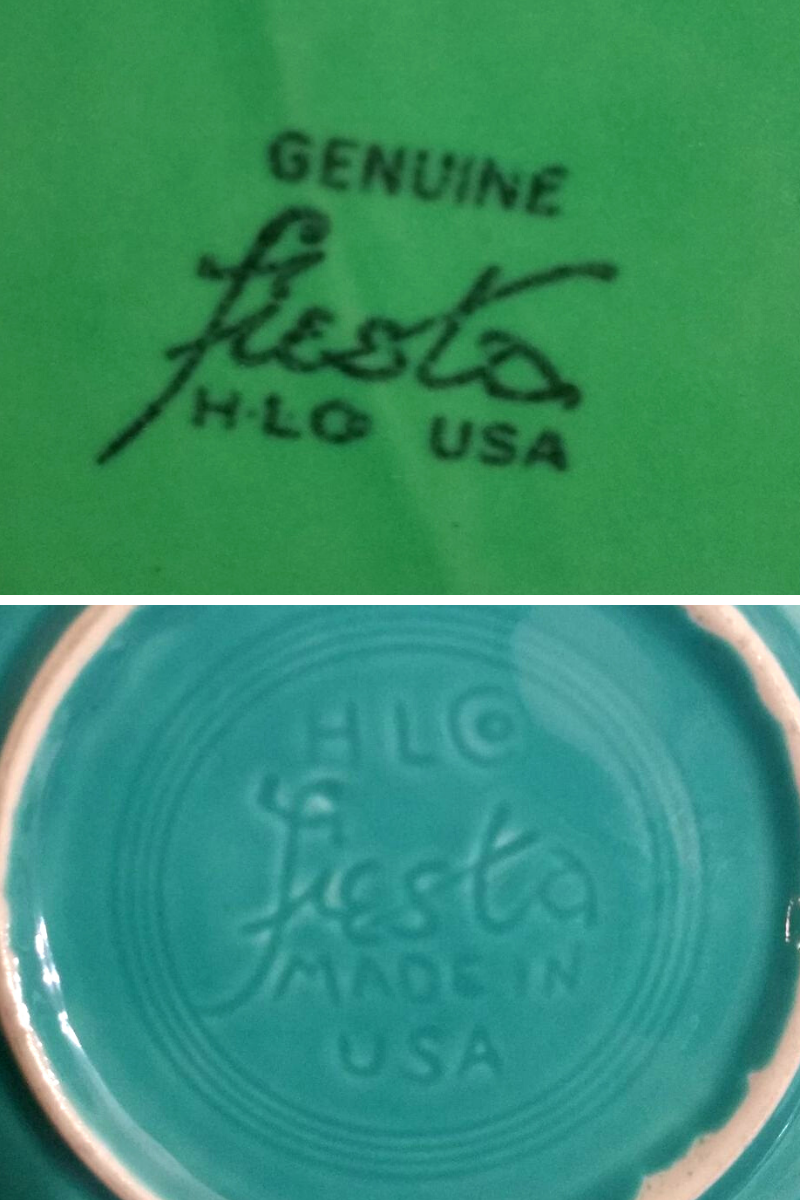
All You Need to Know About Fiestaware The Colors and the Backstamps
The original colors (red, cobalt blue, light green, yellow, and ivory) are the most sought after but all colors of Fiestaware are popular. Medium Green, made from 1959-1969, is the rarest and most hunted color. A piece of Fiesta in that shade is very difficult to find. The original red color, made from 1936-1943, is also incredibly rare.
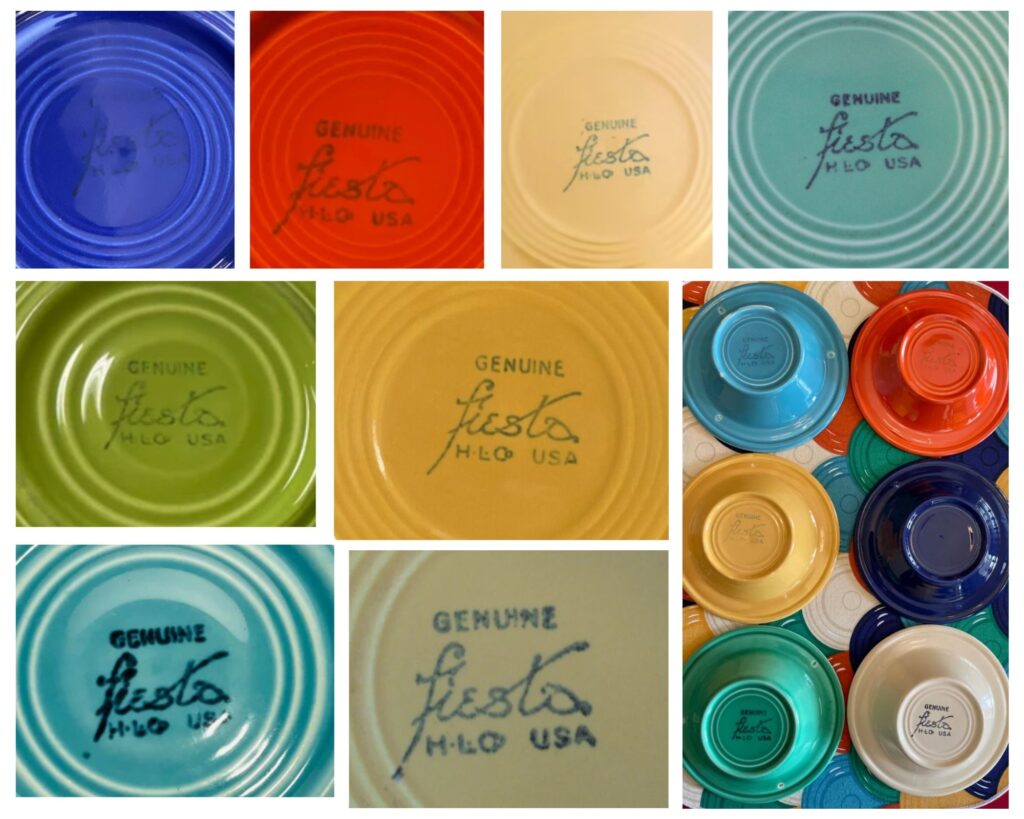
How Old is my Fiestaware? Fiesta Identification Guide Antique Answers
In addition to the piece being completely covered, you'll see three pin marks - these small indentations are a result of the glazing process. New Fiestaware will have a dry foot ring. Flip over your find! Sizing is another good way to tell vintage from modern apart. New plates are solid dimensions, like 15" or 6".

Vintage Fiestaware mixed with antique Harlequin. Homer Laughlin China
NEW FIESTA MARKINGS. "Fiesta" in upper case. Two other new Fiesta backstamps. "H" MARKINGS: if a cast indented mark has a little "H" at the bottom, then it is NEW. The "H" mark is something that HLC recently started in the past couple of years. As a result, there have been many new pieces made which do not have this special mark.

Vintage Fiestaware Markings Job Porn
Fiestaware is proudly made in the U.S.A. All products are still created at the plant in Newell, West Virginia, the same town where the iconic Fiesta design was first developed over 75 years ago. These are the best kitchen tools made here, too. 4 / 10. Courtesy vintageamericanpottery.com.

How Old is my Fiestaware? Fiesta Identification Guide Antique Answers
Fiesta Made since 1986 Since 1986, Homer Laughlin has also used a rubber backstamp to mark some of its Fiesta items. Used mainly on cups and bowls, it uses the words HLC USA and genuine. Vintage Fiesta backstamps use a lower case "f" in the word Fiesta. The new stamp capitalizes the "F" in the name. All the backstamps are applied by machine.

Is your Fiesta Dinnerware Genuine? Fiesta Dating and Backstamp Guide
Fiesta backstamps are the ink markings that appear on the bottom of the plate. These Fiesta markings all feature the word "Fiesta" in some form as well as some marking identifying Homer Laughlin dating the manufacturer. Remember fiesta rules:. Today, there are four possibly more vintage Fiesta markings.

Vintage 1936 red Fiestaware saucer bottom with markings. Fiestaware
Definitive Logo Marks of Old Fiestaware. Lowercase "fiesta" stamp: If the mark is an under-glaze stamp and the word "Fiesta" is entirely lowercase letters, the piece is vintage. " There are lots of variants in the markings, but older vintage Fiesta was ink stamped on the bottom in all lower-case letters," says Wilkes.

Fiesta® Collector or Signature plates in p86 (post1986) and two vintage
Vintage Fiesta Ware Light Green Chop Plate 12 -13 " Original Homer Laughlin Ohio Platter Midcentury Pottery,unmarked fiesta (418) $ 60.00.. No chips cracks, but it does have utensil marks. Plate 1711 (1.9k) $ 7.00. Add to Favorites Vintage Fiesta Kitchen Kraft Cake Plate in Original Radioactive Red
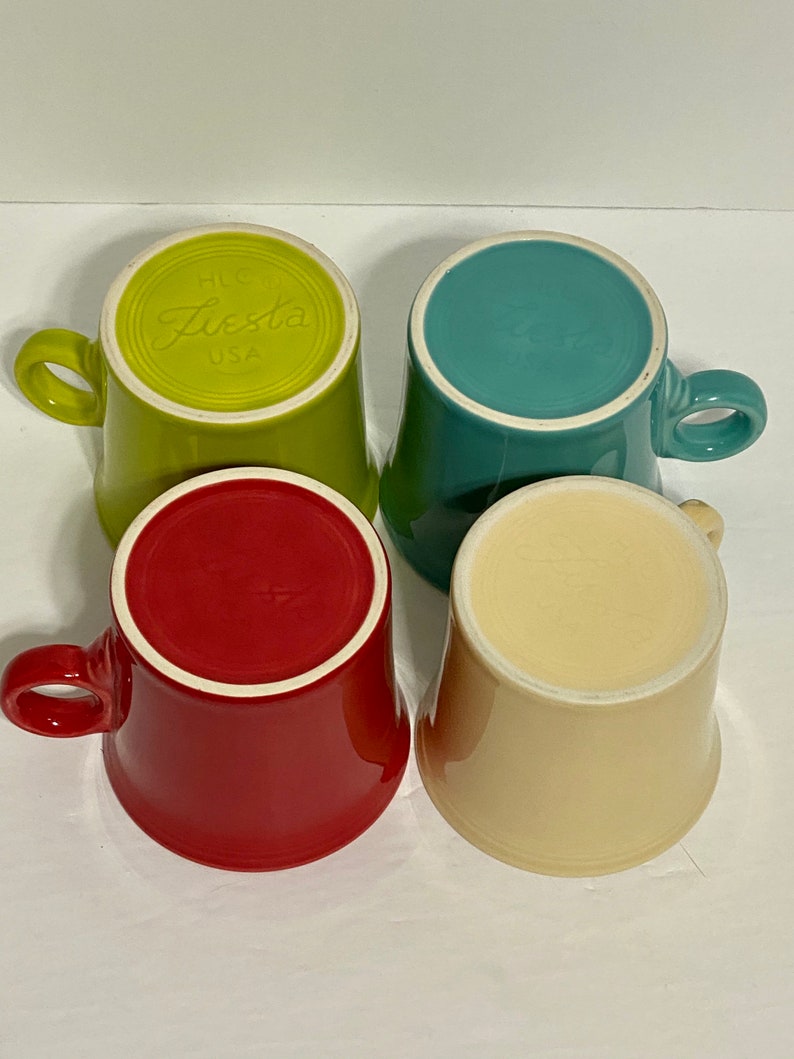
Vintage HLC Fiestaware Dinnerware Mug assorted colors Etsy
Post-1986 Fiesta has a distinctive loop in the F. Current Fiesta has a hard, uppercase, printed F. • "Lead Free" appeared on Fiesta after 1986. • Circular logos are newer. • Date codes: Lately, Fiesta has begun stamping their pieces with date codes. These are a series of letters that represent years and months.
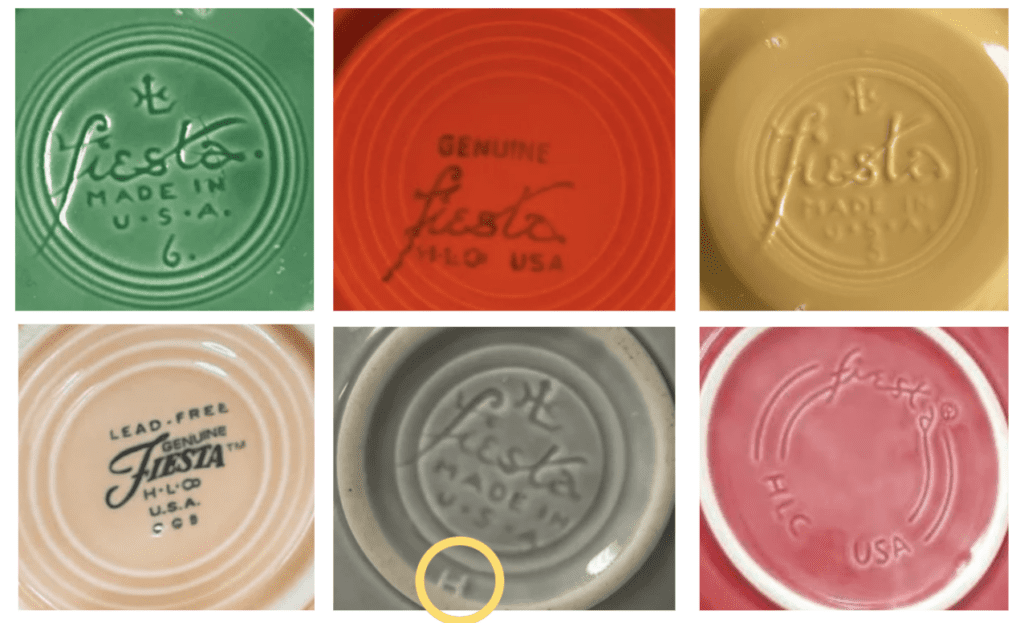
How Old is my Fiestaware? Fiesta Identification Guide Antique Answers
Some Fiesta items have imprinted logos on them, but these are especially hard to date. The only way to tell whether or not an item is vintage is to look for the imprinted letter "H.". The "H" was only added to Fiestaware recently, so any piece with this letter is a newer piece. Lastly, let's discuss circular patterns.

1940s Fiestaware Fiesta Plates Set of 7 Chairish
For Sale: $265. The American Potter Worlds Fair ». Vintage ashtrays made for the Fiestaware and Harlequin dinnerware lines by Homer Laughlin in the late 1930s through the 1960s. Available in multiple colors like red, yellow, turquoise, green, blue and ivory these examples are collector quality for sale and guaranteed.

How to Identify Vintage Fiestaware Our Pastimes
Vintage Fiestaware includes all Fiesta items that were produced between 1936 and 1972. Collectors can identify older vintage Fiestaware by its labeling, which includes "fiesta" in lowercase letters. Modern Fiestaware includes Fiesta items made since 1986. Though there are a few exceptions, modern Fiestaware has "FIESTA" capitalized, and.

How to Recognize Vintage Fiestaware Identifying Marks Fiestaware
Vintage Fiesta ware small nesting bowls - unmarked (39) $ 30.00. Add to Favorites Vintage Mid Century Fiestaware Unmarked, Light Green 12" Round Chop Plate - Circa 1940's - Very Good Condition (5.2k) $ 26.50. Add to Favorites Fiesta Ware Light Green Chop Plate 12", Homer Laughlin Unmarked, Double Footed Underside.

I have a set of vintage Fiestaware that I inherited and need to be
Identifying Fiesta Markings by Year. You may be able to tell if Fiestaware dishes are vintage by looking at the markings on the bottom of the china piece. Fiestaware collectors consider pieces made between 1936 and 1972 as vintage. If the label on the Fiestaware has the word "fiesta" in lowercase letters, it is probably vintage.
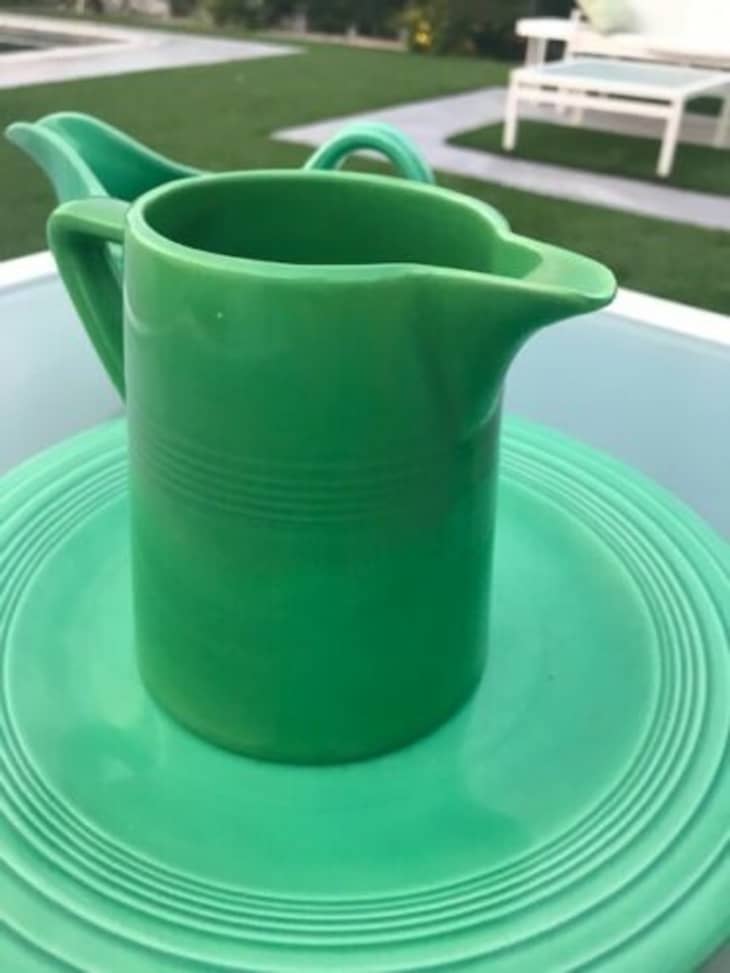
Ebay Fiestaware Selling Price Apartment Therapy
The definitive guide online for United States to help you identify and value your antique. Explore antique markings and prices on thousands of United States items.. Homer Laughlin introduced Fiesta, designed by Rhead, in 1936, phasing out the line in 1973. Fiesta was reintroduced in 1986.

How Old is my Fiestaware? Fiesta Identification Guide Antique Answers
Both have the ink stamps, but it's very hard to see on the cobalt plate until I shine a flashlight on it. All plates have the ink stamp-- even vintage (1936-1972). The ink stamps on plates made in 1986 & after have date codes, telling you when the piece was made. Here's a chart to "decode" the date codes. Hope this helps!